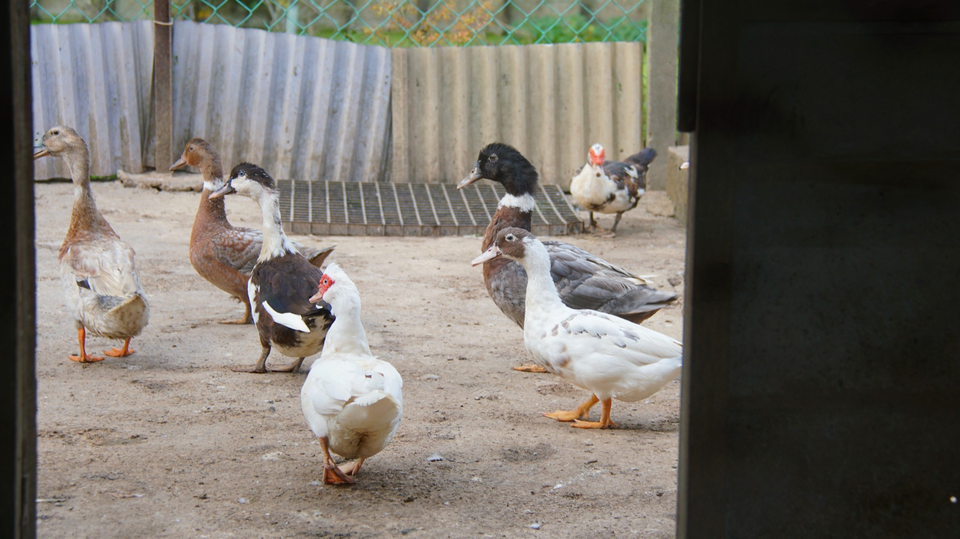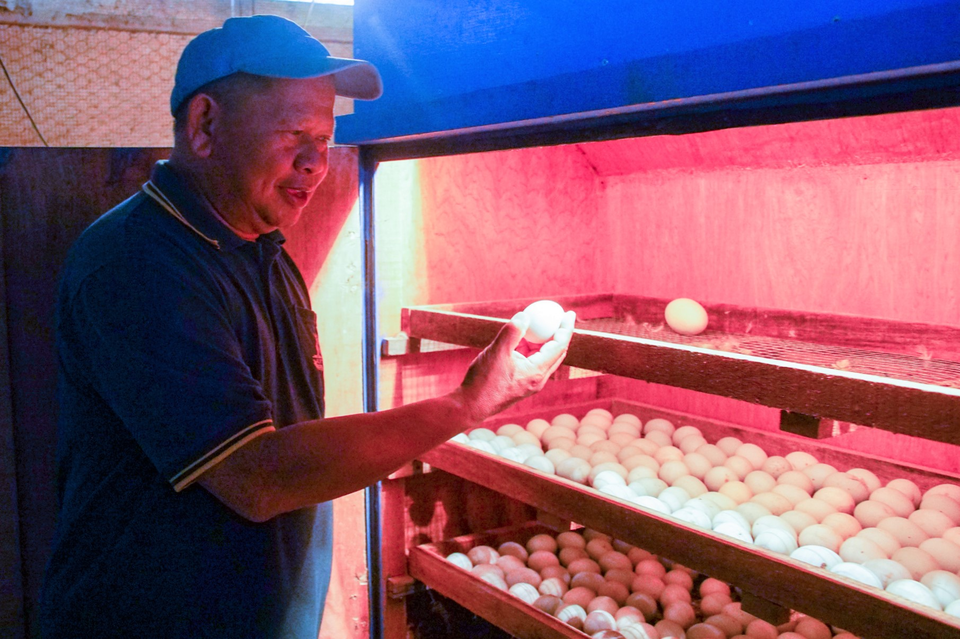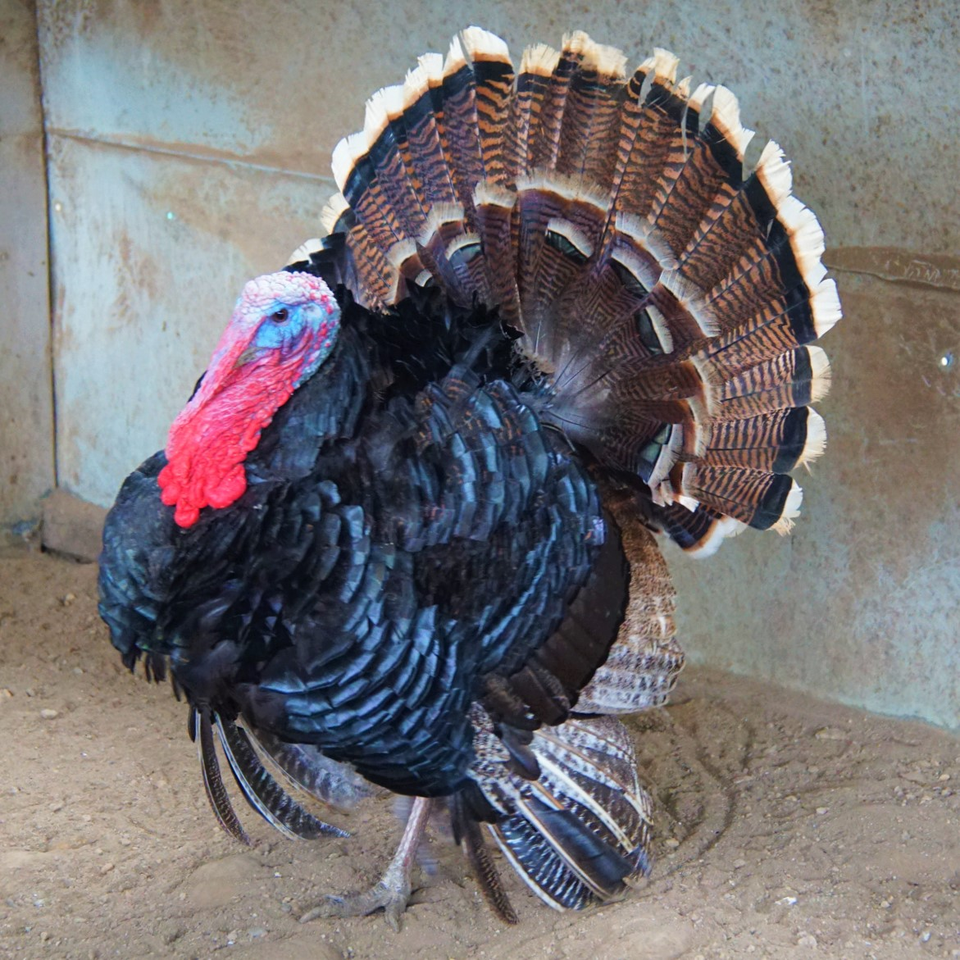When Hj Bakar Hj Berudin’s (BHB) decided to leave his position as Head of Office Services at Brunei Shell Petroleum (BSP) at 50-years-old to start a poultry business, his colleagues’ most immediate question was why?
BHB Enterprise had been leased a two and half hectare plot by the Department of Agriculture and Agrifood, but the area was uncleared forest. It was 2004 – and the likes of Soon Lee, QAF, Hua Ho and Ideal were already on their way to establish themselves as Brunei’s largest poultry businesses.
Today, raising chickens – for meat or eggs – is arguably the most saturated segment of Brunei’s agriculture industry, with the country over 90% self-sufficient in meeting its local poultry needs.
“A big part of my previous job (at BSP) was advising smaller, locally owned businesses on contracts,” said Hj Bakar who was a chartered accountant.
“There were about 500 of them (SMEs) in total, and they really had an effect in inspiring me to try and start my own businesses. I could’ve stayed on and retired (with BSP) but I had already seen the downturn (in oil and gas prices) in 1993 and then again in 1999. I heard His Majesty’s call to diversify away from oil, and I wanted to take the opportunity to start before it was too late.”

In deciding what business to start, Hj Bakar went back to his roots. Raised in a family of farmers, he recalls fond memories of raising chicks for pocket money.
“A few years before I started (the poultry business) Brunei was importing its chicken (from neighbouring countries),” said Hj Bakar. By the time he started, he was investing six figures to stay competitive against the big four of Brunei’s poultry, but their substantially larger operations meant that they were able to supply chicken to the market at a cheaper rate.
“The bottom line was who could make the most chicken at the cheapest price,” said Hj Bakar. “By 2013 (ten years after we started) it was clear that we were (ultimately) fighting a battle that we could not win.”
Retiring from his corporate career started to appear like a hasty decision, but Hj Bakar was already picking up on an age old delicacy that was starting to make a comeback – salted duck eggs.
He had begun rearing eight ducks in 2008 – six female and two male – initially on a whim. He increased to 135 ducks shortly after, and began experimenting with rearing Peking ducks, turkey and geese.
With rearing ducks and salting their eggs relatively new in Brunei commercially, Hj Bakar traveled regionally to learn industry standards. A year after he had phased out rearing chicken, he had over a thousand ducks.

Today, the 62-year-old has 4,000 ducks, capable of producing 1,000 eggs a day which are sold to local supermarkets. BHB Enterprise now makes between $10,000 to $12,000 in gross sales monthly, with a net profit margin around 30%.
“We’re in the process of bringing in a new, more productive breed (of ducks),” said Hj Bakar, who has ambitiously targeted an output of 5,000 duck eggs by 2020.
“The current (local) breed has a production rate of 40 to 45 per cent, which means for every 100 ducks, we’ll get 40 to 45 eggs every 23 or so days. The Campbell ducks has a production level of 80 to 90 per cent and it’s for every 18 days.”

Hj Bakar is also keeping abreast with the latest trends in poultry, predicting a small increase in local appetite for turkey, especially amongst non-Muslims during festive seasons.
With a slaughterhouse on site, Hj Bakar sells about 100 fresh turkeys a year – mostly directly to customers for $30 to $50 – and he’ll keep close tabs on local demand to be able to boost his rafter further.
Looking back on his entrepreneurial journey, the 62-year-old acknowledges that capital and expertise are barriers to entering agriculture commercially. So he’s now mentoring other young agriculture businesses, building a framework where they can buy chicks from him to raise, and have the option of selling the produce back to BHB Enterprise at a fixed rate.
“I’m currently doing a trial run with a few people. Hopefully in some small way it helps (those struggling with employment),” said Hj Bakar,
“I’ll keep you posted once it’s up and running and you can come see it for yourself,” he adds as we finish our interview. “Until then just wait for the good news.”
Watch: Inside BHB’s farm in Jerudong
Visit BHB Enterprise’s website to learn more and contact +6737201995 to get in touch directly.












